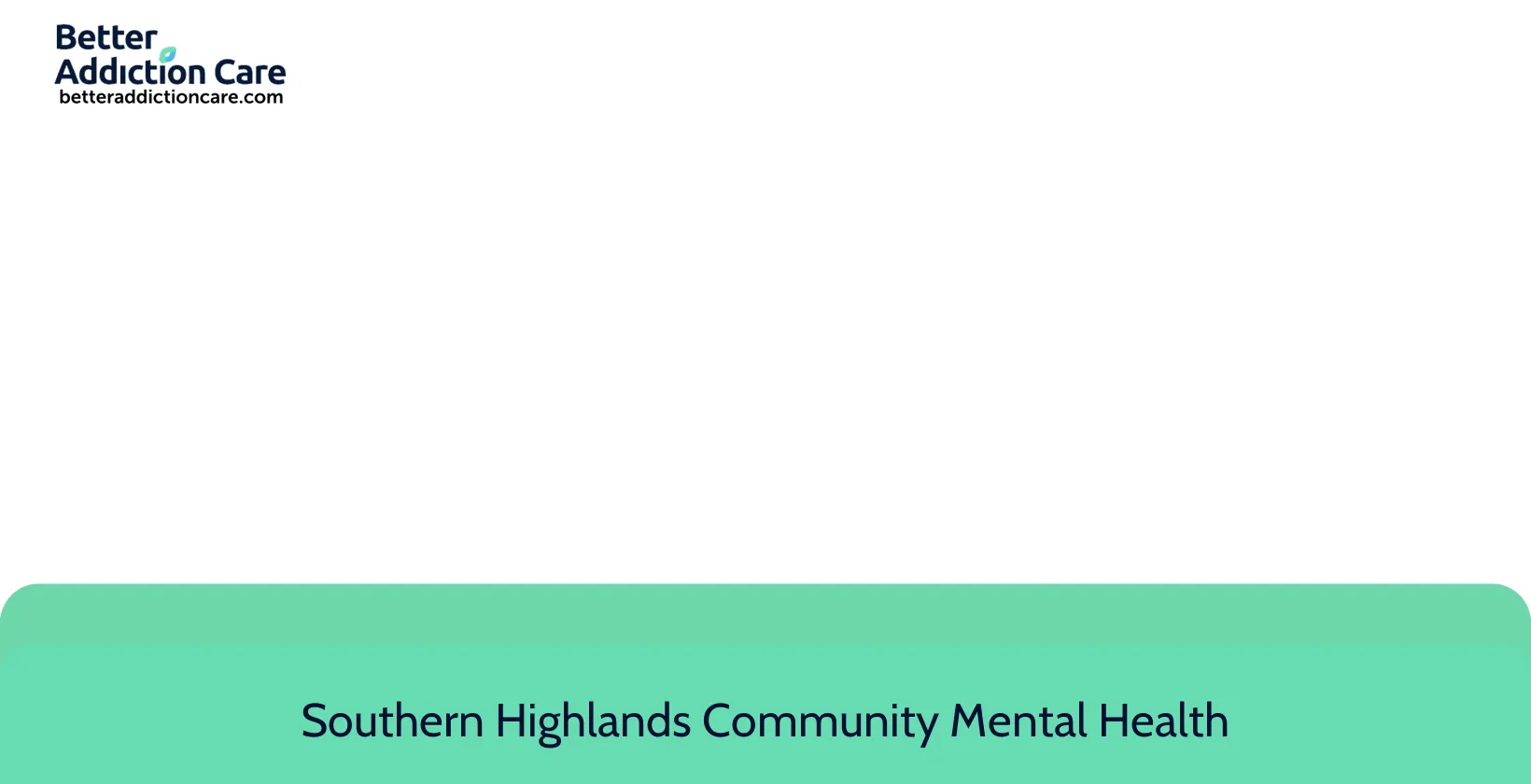Southern Highlands Community Mental Health Center (CMHC)
Overview
Southern Highlands Community Mental Health Center (CMHC), located in Princeton, offers a comprehensive range of services to meet the diverse needs of its community. The center is dedicated to providing high-quality clinical care for children, adolescents, and young adults aged 6 to 17 who are experiencing mental health issues or substance use disorders.
Services at Southern Highlands Community Mental Health Center:
Children, Adolescents, and Young Adults:
- Clinical Care: Specialized services for young individuals dealing with mental health problems or substance use disorders.
- Outpatient Services: Includes individual and group counseling designed to support mental health and recovery.
Crisis Services:
- Crisis Stabilization: Immediate support and intervention for individuals experiencing a mental health crisis.
- 28-Day Residential Care: Short-term residential program offering intensive support and treatment.
Integrated Care:
- Coordinated Primary and Behavioral Care: Ensures seamless integration of primary healthcare and behavioral health services, providing a holistic approach to patient care.
Southern Highlands CMHC is committed to delivering comprehensive and coordinated care that addresses both the physical and mental health needs of its clients. By integrating various therapeutic modalities and support services, the center aims to enhance the overall well-being and recovery outcomes for children, adolescents, and young adults in the community.
Southern Highlands Community Mental Health Center (CMHC) at a Glance
Payment Options
- Medicaid
- Private health insurance
- Cash or self-payment
- Payment assistance (check with facility for details)
- State-financed health insurance plan other than Medicaid
Assessments
- Comprehensive mental health assessment
- Comprehensive substance use assessment
- Screening for tobacco use
- Interim services for clients
- Outreach to persons in the community
Age Groups
- Adults
- Young adults
- Children/adolescents
- Seniors
Ancillary Services
- Assertive community treatment
- Case management service
- Court-ordered outpatient treatment
- Diet and exercise counseling
- Education services
Highlights About Southern Highlands Community Mental Health Center (CMHC)
7.98/10
With an overall rating of 7.98/10, this facility has following balanced range of services. Alcohol Rehabilitation: 8.00/10, Drug Rehab and Detox: 8.46/10, Insurance and Payments: 6.67/10, Treatment Options: 8.79/10.-
Treatment Options 8.79
-
Drug Rehab and Detox 8.46
-
Alcohol Rehabilitation 8.00
-
Insurance and Payments 6.67
Accreditations
State department of health:

Government agencies issue State Licenses, which grant rehabilitation organizations permission to conduct their operations lawfully within specific geographic regions. Licenses needed to operate are typically determined by the type of rehabilitation program offered by the facility and its physical location.
Treatment At Southern Highlands Community Mental Health Center (CMHC)
Treatment Conditions
- Mental health treatment
- Alcoholism
- Opioid Addiction
- Substance use treatment
- Co-occurring Disorders
Care Levels
- Detoxification
- Aftercare
- Outpatient
- Hospital inpatient treatment
- Outpatient detoxification
Treatment Modalities
- 12-step facilitation
- Individual psychotherapy
- Group counseling
- Family counseling
- Marital/couples counseling
Ancillary Services
Languages
- Sign language services for the deaf and hard of hearing
Additional Services
- Pharmacotherapies administered during treatment
- Holistic Treatment
- Breathalyzer or blood alcohol testing
Special Programs
- Clients who have experienced trauma
- Persons 18 and older with serious mental illness (SMI)
Contact Information
Read our Most Recent Article About Drug Addiction
DISCLAIMER: The facility name, logo and brand are the property and registered trademarks of Southern Highlands Community Mental Health Center (CMHC), and are being used for identification and informational purposes only. Use of these names, logos and brands shall not imply endorsement. BetterAddictionCare.com is not affiliated with or sponsored by Southern Highlands Community Mental Health Center (CMHC).









